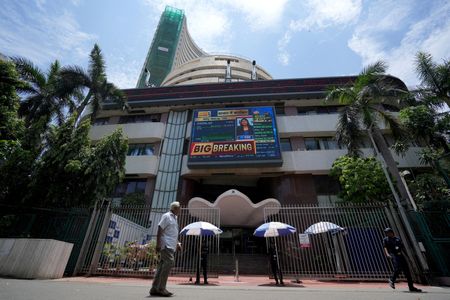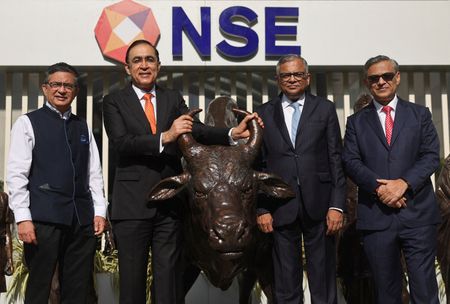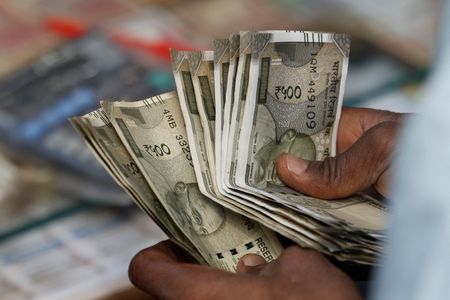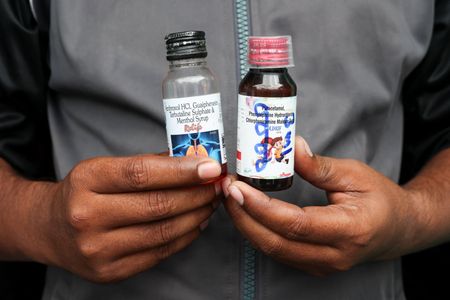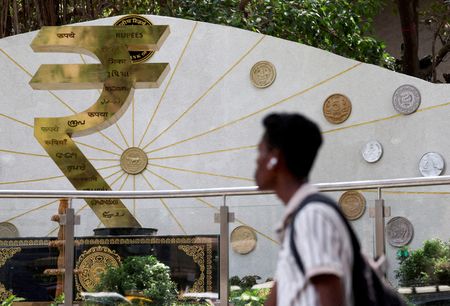By Bharath Rajeswaran and Vivek Kumar M
(Reuters) -India’s benchmark shares fell on Monday, tracking losses across Asia after the United States made fresh tariff threats against China, while Tata Capital’s much-awaited market debut came at a small premium over its issue price.
The Nifty 50 fell 0.36% to 25,195.5 and the BSE Sensex shed 0.35% to 82,211.63 as of 9:57 a.m. IST.
Thirteen of the 16 major sectors logged losses. The broader, more domestically focused small-caps and mid-caps fell 0.4% and 0.2% respectively.
Other Asian markets fell 2.1% on the day.
Tata Capital listed at a premium of 1.23% over its issue price of 326 rupees in its debut trade, with the retail market seemingly still not that keen on the first listing by the storied Tata Group in nearly two years.
On Friday, U.S. President Donald Trump promised to sharply hike tariffs on China in a reprisal against its curb on critical mineral exports.
Rising trade tensions between the world’s two largest economies could fuel inflation in the U.S. and force the Federal Reserve to delay interest rate cuts.
High U.S. rates do not bode well for emerging market equities such as India as they make dollar and Treasury yields attractive for global investors.
“Since the U.S. and China are the largest economies in the world with strong links with the rest of the world, global equity markets will be hurt in the short term,” said G Chokkalingam, founder and head of research of Equinomics Research.
However, Indian markets could largely avoid the global downturn if the U.S. refrains from extending its tariff war to India, which might prompt a tactical shift of foreign inflows from China to India, Chokkalingam said.
Among individual stocks, Waaree Renewable Technologies jumped 8% after its September quarter profit surged.
Visa processing company BLS International tumbled 13% after the Ministry of External Affairs temporarily restricted the company from participating in new tenders for two years.
(Reporting by Vivek Kumar M and Bharath Rajeswaran; Editing by Sumana Nandy and Janane Venkatraman)

